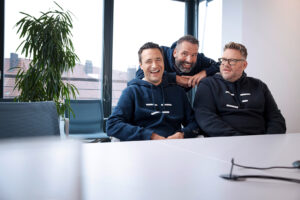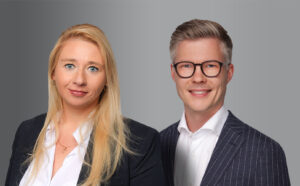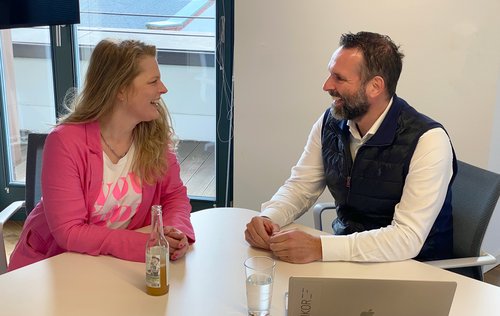
– Company and Culture
"Evolve without fomenting uncertainty"
- •
- Kristina Schreiber
- •
- Part 2 of 2
– ABSTRACT
IT consulting talents want to work in companies with culture
– Fast Lane
In this article you will learn:
IKOR has set itself the goal of "moderate growth". This means that the company also needs a certain amount of cool applicants able to accept and implement additional projects. How do you manage this in terms of personnel and company culture?
Sven Schlünzen: We are experiencing growth above the market level and are aiming for a ten percent increase in sales and employee growth in 2023. This growth represents a linear investment. We continue to attract cool applicants who, true to our motto, embody "Be who you are, show what you can do."
Is this also happening because of IKOR‘s market development and the content-technological orientation?
Schlünzen: Typical IKORians do not apply to the IT department of an insurance company. They talk to colleagues and recruiters and learn about us through word of mouth and recruiting campaigns. Many of the people we attract ask themselves whether their work is meaningful, what kind of colleagues they work with every day, and whether they receive leadership that deserves the name.
On the one hand, culture scores points. How does it behave on the other hand?
Schlünzen: I would like to develop IKOR more into a service and product-oriented organization. The classic consulting business as we know it today will certainly accompany us in a stable manner over the next few years. In the end, however, I see that customers demand service and effective solutions, instead of just a consultant at X price.
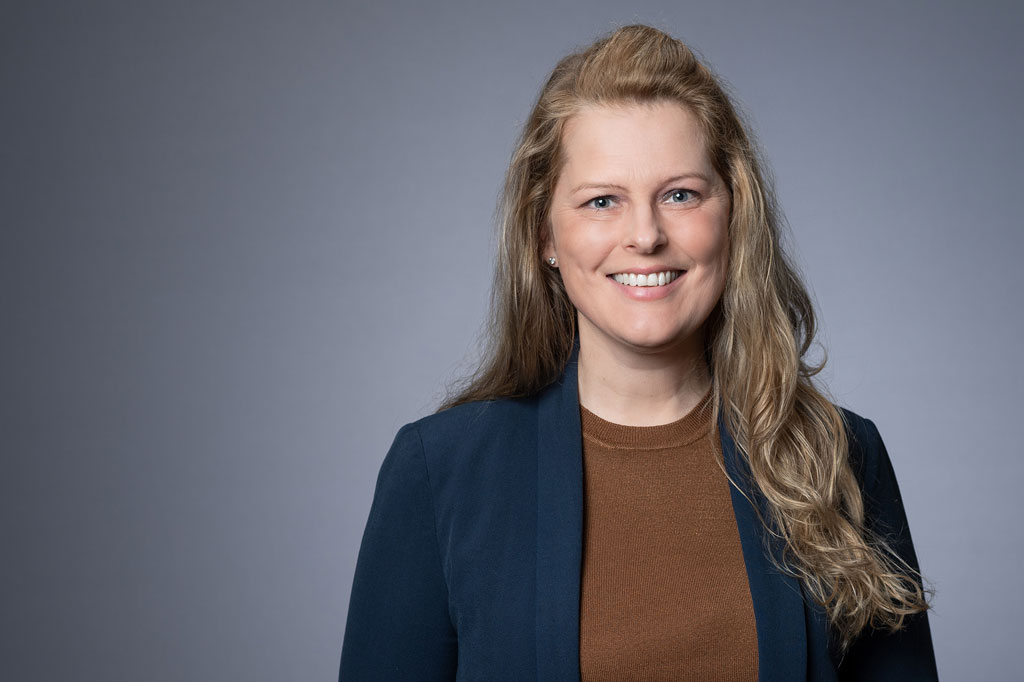
Kirsten Weidemann
is Team Lead HR at IKOR
"You you have to build a foundation of trust, listen to employees and prove that you value them. And that you know what inspires the people you lead."
What will you focus on going forward?
Schlünzen: We want to get our IKORians excited about the possibilities of market growth through scaling and new business models.
What does this mean for your Recruiting 2.0 processes - especially to attract suitable new talents who support and live this credo?
Weidemann: IT Companies have long been applying to applicants. That's why we actively involve the specialist departments at an early stage. Because applicants want to talk to decision-makers and avoid intermediate players - recruiters or HR teams. They demand quick decisions and also background information directly from the specialist departments. If you don't offer shortcuts, you're at risk of reducing your attractiveness as an employer.
What does that mean in concrete terms?
Weidemann: No one who is quite happy in their current job wants to upload a digital application portfolio with their resume, references and a perfect cover letter somewhere over the weekend. That's why we want to make the application and decision process easy for candidates, with simple entry channels, callback services andtestimonial stories that describe what a unique employer IKOR is. Employee benefits, such as the workation opportunity in Mallorca example, are a significant differentiator.
How do economies of scale, as part of the overall corporate development process (editor's note: see Part 1), affect recruiting?
Schlünzen: Our shift toward a service-oriented market offering does not automatically correspond to ten percent company growth, i.e. ten percent more colleagues. We are much freer to act flexibly. Service scaling happens in line with our market growth. We can grow disproportionately and gain employees with new skills. In addition, more investment budgets are freed up, allowing us even more capabilities.
... because you can use and adapt a product or service over and over again. Feel free to give an example.
Schlünzen: We deliver a system configuration as a service and guarantee predefined factors down to the last detail. We also ensure platform operations at customers wherein a few colleagues can look after several systems at the same time due to variable workloads. However, what is important first and foremost is that we meet customer requirements with our products, services and performance, continuously and actively supporting our clients.
Being marketable in the long term - what does that mean in terms of personnel in a VUCA (volatile, uncertain, complex and ambiguous) environment?
Weidemann: Human Resources takes care that our employees are well trained and acquire the necessary certifications. We create guardrails based on career stages and ensure that the fundamentals are correct and that people remain happy with us. We also ensure that our leadership is well trained and empowered to act.
Sven Schlünzen
As IKOR‘s managing director, he is responsible for strategy development.
"Change becomes easier to observe over time."
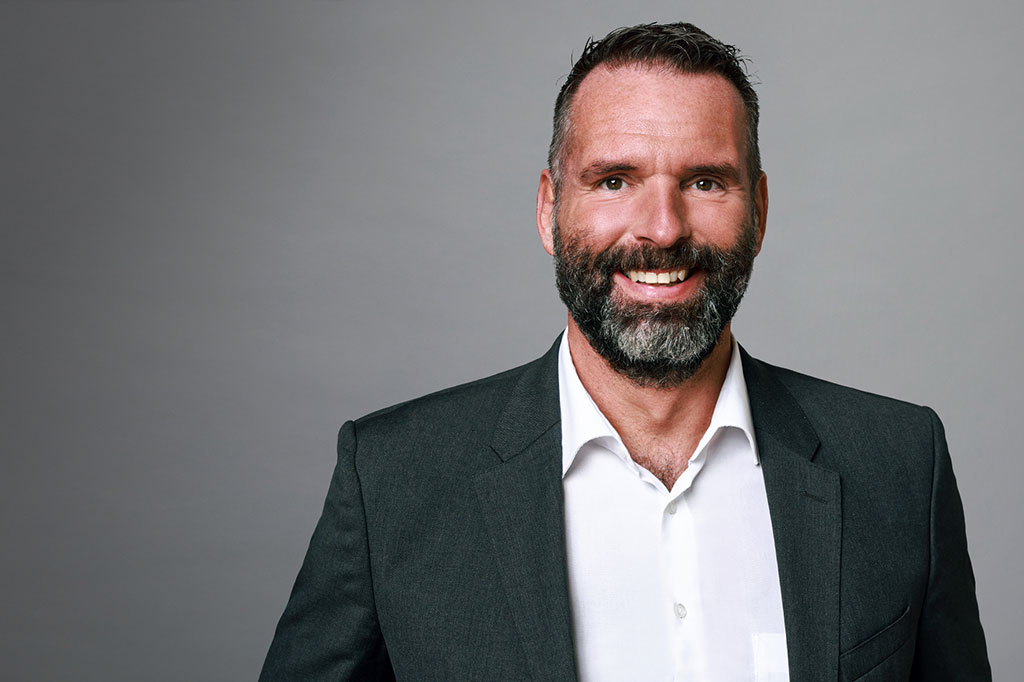
What does that mean in these post-pandemic, wartime, societal crisis times?
Weidemann: Today more than ever, you have to build a foundation of trust, listen to employees and prove that you value them. And that you know what inspires the people you lead. That you can also provide support in case of doubt when colleagues are in a privately difficult situation. In short, being able to talk to your manager not only offers enormous opportunities, but also brings with it a huge responsibility.
Schlünzen: The much-cited VUCA world of change, uncertainty, complexity and ambiguity is virtually compelling us to change. A brutal war is raging on the doorstep of our Polish neighbors. In the meantime, technological change is taking place unabated. This digital change opens up a lot of opportunities for IKOR. That's why I want to develop the company from a consultancy with all its positive facets into a scalable product and service house - without creating uncertainty among employees.
How will you bring all your colleagues along on this journey?
Schlünzen: Change becomes easier to observe over time. I trust each and every one of us have the necessary potential for change, because we can do it. Kodak is a relevant case study, evolving from analog solutions to master digital photography, with appropriate cameras and device interoperability, and building employee competency with critical skills. This model of success reflects IKOR’s strategy to reinvent oneself with foresight and to welcome smart change - nothing less is my intention for IKOR.
How are you going to do that specifically?
Schlünzen: You can only develop a strong company together with its people. That's why HR and Corporate Development must involve all colleagues. In order to be ready for change, they must feel enthusiasm for our culture. And we must enable our tech aficionados and agile "pros" to take their colleagues by the hand and inspire them. If we succeed in this, our organizational development process will be crowned with success.
Weidemann: I am excited about the future and trying out new things, enabling change, empowering people who dare to dream, and testing concepts and solutions. New processes provide the framework for recognizing, sharpening, changing and moving forward. Precisely because the entire economic and social environment is so dynamic, our approach makes it easier than ever for us to tackle change.
Schlünzen: I have no doubt at all that our vision will succeed and that IKOR will continue to be sustainable and even more successful. The key to this is and remains our IKORians.




